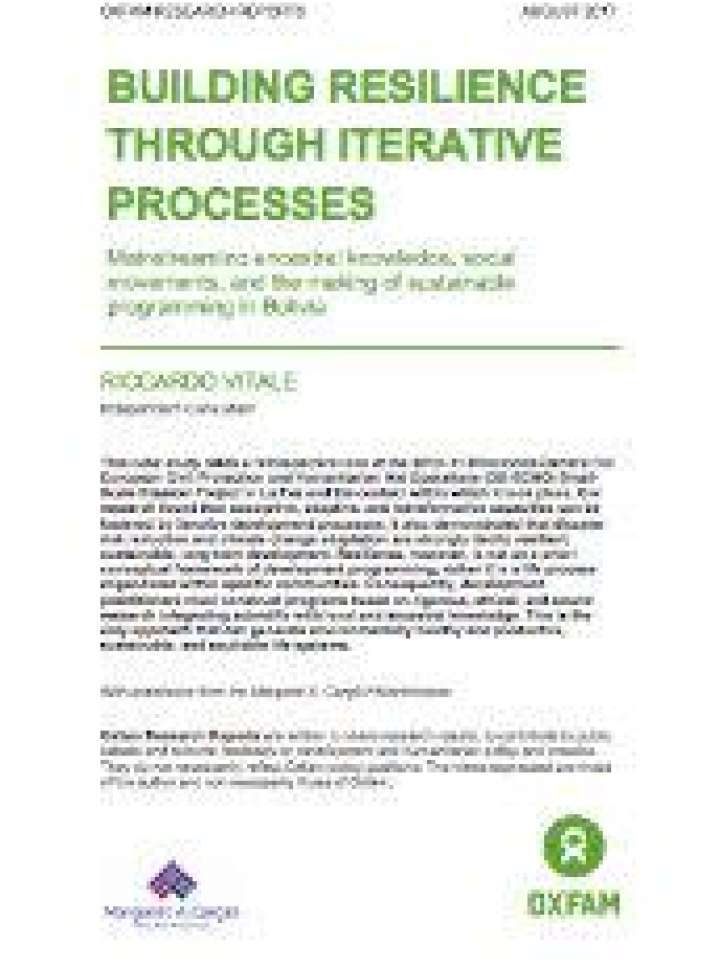Building resilience through iterative processes: Mainstreaming ancestral knowledge, social movements, and the making of sustainable programming in Bolivia
This case study takes a retrospective look at the 2010–11 Directorate-General for European Civil Protection and Humanitarian Aid Operations (DG-ECHO) Small-Scale Disaster Project in La Paz and the context within which it took place. The research found that absorptive, adaptive, and transformative capacities can be fostered by iterative development processes. It also demonstrated that disaster risk reduction and climate change adaptation are strongly tied to resilient, sustainable, long-term development. Resilience, however, is not an a priori conceptual framework of development programming; rather it is a life process engendered within specific communities.
Consequently, development practitioners must construct programs based on rigorous, ethical, and sound research integrating scientific with local and ancestral knowledge. This is the only approach that can generate environmentally healthy and productive, sustainable, and equitable life systems.
Explore further
